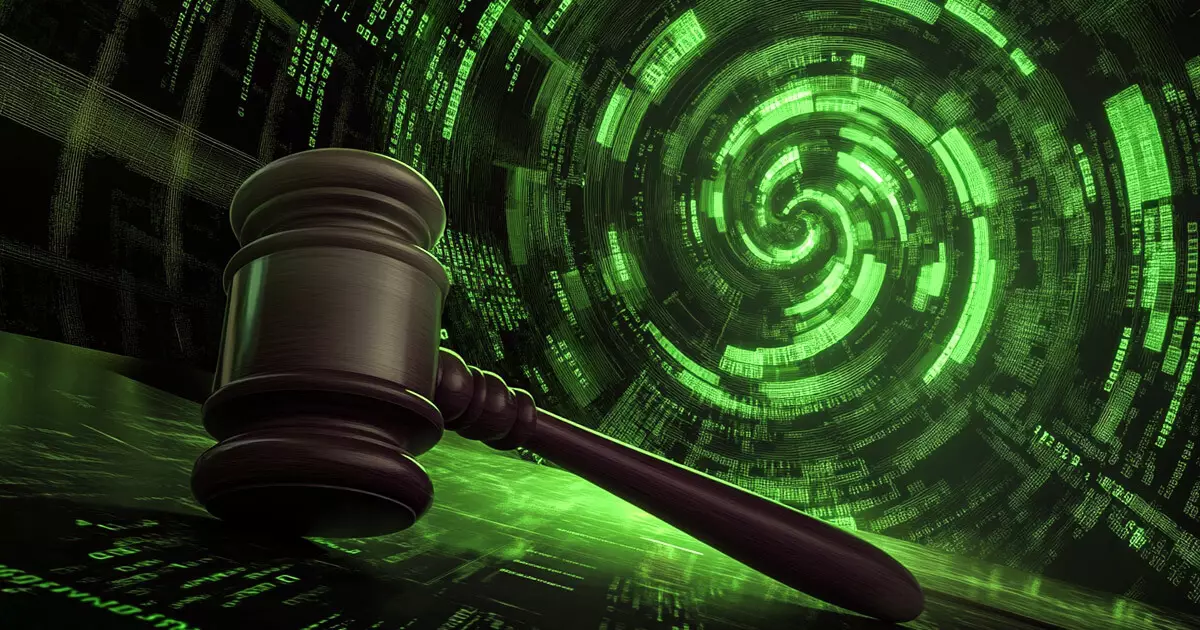The intersection of law and technology has always been a contentious space, but recent rulings have illuminated a particularly challenging area: the legal classification of cryptocurrency protocols and the protections extended to their developers. A recent decision by US District Judge Katherine Polk Failla has become a focal point of debate, particularly as it relates to the First Amendment’s protections of free speech and the responsibilities of software developers in the cryptocurrency space. This ruling, with significant implications for the crypto industry, particularly surrounding Tornado Cash, brings to light essential questions regarding the legal boundaries for code as a form of expression.
The ruling, delivered on September 26, 2023, determined that the software code underpinning crypto protocols like Tornado Cash does not qualify for First Amendment protection as free speech. This judgement is pivotal, especially for developers like Roman Storm, who are facing serious legal ramifications. Storm has been charged with various offenses including money laundering and operating an unlicensed money-transmitting business. His defense contended that the creation and deployment of such code should be protected under free speech. However, Judge Failla’s pronouncement clearly delineated that, despite code possessing expressive qualities, its application in facilitating financial transactions situates it outside the protective parameters of free speech.
This ruling essentially classifies crypto protocols as money transmitters, challenging the notion that developers cannot be held accountable for the functionalities their software performs, particularly when those functionalities intersect with financial regulations. This legal interpretation has raised the stakes for not only Storm, whose trial is imminent on December 2, but for the entire cryptocurrency landscape which often prides itself on decentralization and developer autonomy.
The fallout of this ruling extends far beyond the immediate case of Tornado Cash. By labeling platforms like Tornado Cash and Samourai Wallet as unlicensed money transmitters, the court aligns these technologies closer to the regulatory frameworks governing traditional financial institutions. It raises critical issues about the responsibility of developers and companies operating in this space—if software can be treated as a channel for money transmission, does that imply greater accountability and regulation?
Critics, including legal experts from within the crypto world, have expressed their profound concern regarding the precedent set by this ruling. Amanda Tuminelli, the DeFi Education Fund’s chief legal officer, suggested that this judgment could have unprecedented implications for developer liability, fundamentally altering how they design and implement blockchain solutions. The fears resonate across the developer community; they worry this ruling could act as a disincentive for innovation, limiting the creativity and freedom historically associated with software development.
The crypto community’s response has been one of deep discontent, with various figures likening the ruling to an encroachment on the rights of software developers. Jake Chervinsky, the chief legal officer at Variant, has gone as far as categorizing the decision as an “assault on the freedom of software developers everywhere.” Such sentiments underline a growing anxiety around the sustainability of blockchain technologies under stringent regulatory scrutiny.
As regulators grapple with applying existing laws to these rapidly evolving technologies, the fallout from this ruling presents an opportunity to rethink how regulations are formulated for digital currencies. Clarity on the legal standing of blockchain technologies and their developers has never been more crucial. The response from the regulatory landscape could shape the future trajectory of the entire crypto sector, influencing not only current projects but also inhibiting potential innovations yet to be realized.
Judge Failla’s ruling represents a significant turning point in the legal treatment of cryptocurrency protocols. As the implications of this decision unfold, the broader crypto community must navigate a landscape where their capabilities for innovation may clash with regulatory demands. The impending trial of Roman Storm will undoubtedly serve as a bellwether for how future cases involving cryptocurrency development may proceed. The dialogue surrounding these issues is likely just beginning, with appeals expected and continued scrutiny on how the law will adapt in the face of ongoing technological advancements. As this dynamic field evolves, so too will the efforts to ensure both protections for developers and accountability for the tools they create.


Leave a Reply